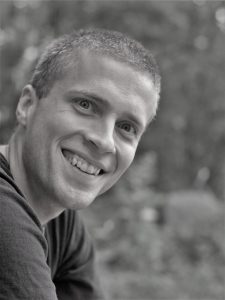
Creating Better Code with Math: Morphism
Computer programming and code is prevalent in so many aspects of daily life and Scott Messick, Cornell University Ph.D ’16 Math, M.S. ‘16 Computer Science, is on a mission to create a more effective programing language to address some of the issues that plague the languages in use today. One of Rev: Ithaca Startup Work’s newest members, Messick recently founded the company Morphism.


Photo credit: Ying-Ying
The idea to create Morphism didn’t materialize in an instant; it developed over time, largely as a result of lessons learned from Messick’s coding projects in his free time.
“A lot of my for-fun projects were AI-themed, like trying to see if I could observe evolution on my computer,” he noted. Though Messick’s projects often weren’t particularly successful, they enabled him to build an increasingly extensive understanding of the coding languages in common use. “It was in those projects that I learned different ways to think about coding.”
These years of tinkering and his formal education in mathematics led him to an informed conclusion: the languages available could be made much more effective if they borrowed a few concepts from theoretical math.
The issue? “Poorly defined semantics,” says Messick. In his view, many of the aspects of programming that require a significant amount of work and attention in existing languages could be more precisely and quickly denoted using mathematical ideas.
So, once he developed the concept for his new language, Messick began devising a way for the project to grow and gather support. To establish it as an academic endeavor would limit his time and fundraising potential, so Messick opted to integrate the project into a broader business plan.
“The programming language is an open source project,” he explains, “and once that’s developed to a level of reasonable maturity it’ll be possible to create software that is better than what is available now, whether for fun or for a paying client.”
When asked about his motivation to improve the coding tools in use, Messick cites a desire to use his expertise and education to impact broader society – a desire he says is often missing in the culture that surrounds theoretical math in academia.
Now at Rev, Messick devotes much of his time to conducting research to build up his programming language and utilizing Rev’s resources to bolster his business plan and prepare for the future. Rev’s mentorship opportunities and local network were the initial factors that attracted him to become a member. He hopes to hire talent to join his team in the near future.
To find out more about Morphism, contact Scott Messick at [email protected]
